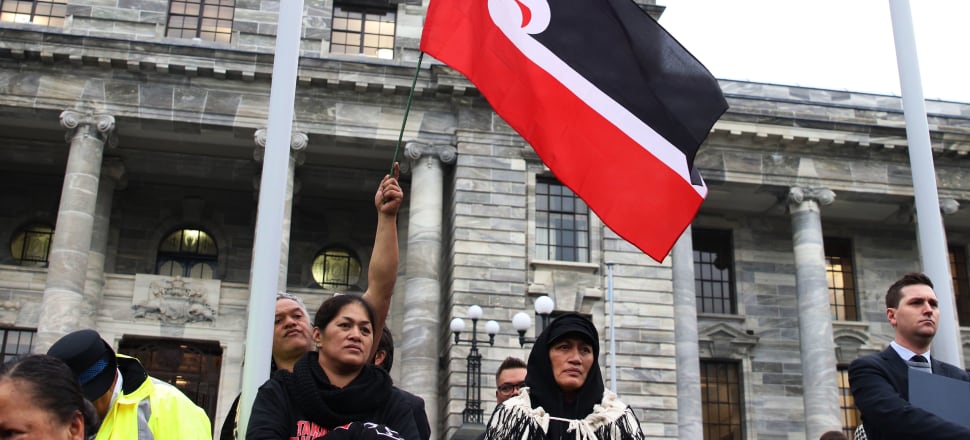Written by Shirin Ranjbar
The New Zealand government is due to abolish the twenty District Health Boards by July this year. The new health system will include a new Māori Health Authority. Instead of twenty different decision makers, the country will have a singular decision maker.
The current system is characterised by fragmentation, where a decision that could be made once is made multiple times. The emergence of the proposed Māori Health Authority has come after years of outrage over the health system’s breaches of Te Tiriti. Māori suffer from poor health outcomes under a variety of measures. For starters, it is well known that Māori and New Zealand Europeans have a seven-year life expectancy gap. Māori also have higher rates of cancer.
These statistics speak for themself. Māori have worse health outcomes, drawing political action in response. In 2019, the Waitangi Tribunal identified that the health system has breached Te Tiriti by failing to design a system that addresses Māori health inequities and has not guaranteed tino rangatiratanga (self-determination) for Māori. A Māori Health Authority means that Māori will be represented and placed at the forefront of decision making regarding Māori health.
Health System Restructure
The twenty District Health Boards are set to merge into Health NZ and will be responsible for the daily running of the health system. The Ministry of Health will have a refocused role as lead advisor to the Government on health matters. The new system will also have increased focus on investing in primary and community care.
The Māori health leadership also means that funds will be directed towards Māori health issues. The Māori Health Authority will work in partnership with the Ministry of Health and Health NZ, developing strategy and policy which will drive better health outcomes for Māori, and commission Kaupapa Māori services that target Māori communities. It will also monitor the performance of the health system in addressing health inequities, and establish mātauranga Māori services.
Different Perspectives
These proposed changes have not been without critique. Ahead of the upcoming election year, both National leader Christopher Luxon and David Seymour have said they would dismantle the Māori Health Authority if they are voted into Parliament. They claim that the new authority is pure ‘bureaucracy’ on the basis they would monitor Māori health inequities as well as commission services. Although they acknowledge that involving Indigenous communities in decision making improves health outcomes, they believe this could be done without a treaty-based response. 4 Even the Māori Expert Advisory Group (MEAG) had a variety of views in granting the agency commissioning powers. Four of the six members were sceptical in granting the new authority commissioning powers.
On the other side, the Māori Health Authority’s commissioning powers are regarded as necessary to address intergenerational wrongdoings on Māori communities.7 Sharon Shea, the chair of the MEAG strongly supports the authority’s commissioning powers, saying “We need to do something differently. We don’t need a policy that talks about prioritising Māori and then we don’t have structures and systems and leaders in place to actually enable us to effect that change.” 6
Rhys Jones, a senior lecturer in Māori Health, views the commissioning powers as necessary to address racism, but feels uncertain regarding the project’s ability to change health outcomes. In a statement made to Science Media Centre, he said “The NZ health & disability system is racist to the core and complicit in reproducing health inequities. Establishing a new Crown agency, reducing the number of DHBs, and creating a Māori health authority with limited powers is not going to change that”.
Looking Forward
New Zealand will see historical new changes happening in the health system this July. The health system will increase its funds directed towards Māori health issues, more than ever. There is dispute over how Māori health issues ought to be addressed, and there will no doubt be ongoing debate about the commissioning powers of the Māori Health Authority. With opposition parties ACT and National both labelling a treaty response as unnecessary, it is unclear what the future holds for the New Zealand health system. Will the upcoming election see the breaking point of the Māori Health Authority? Whether the Māori Health Authority will successfully reduce health inequities and keep its commissioning powers will be known with time.
References
2 https://waitangitribunal.govt.nz/news/report-on-stage-one-of-health-services-and-outcomes-released/
3 https://www.futureofhealth.govt.nz/maori-health-authority/
6 https://www.newsroom.co.nz/disputes-over-powers-of-proposed-mori-health-authority
Image: https://www.newsroom.co.nz/disputes-over-powers-of-proposed-mori-health-authority




